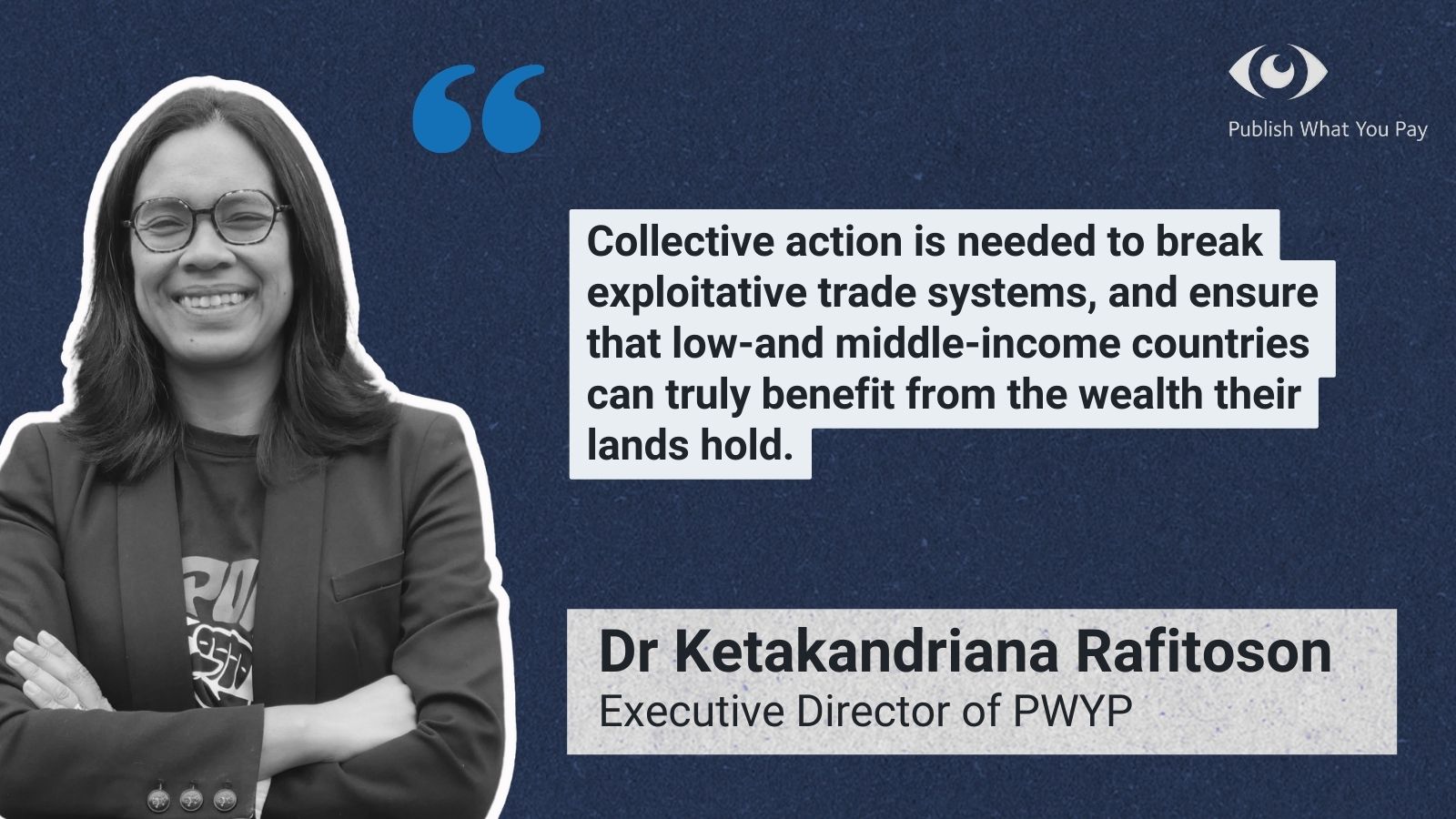As the world transitions to cleaner energy, the legacy of exploitation embedded in the global economy is undermining equity in transition minerals. Trade systems, rooted in colonial structures, continue to marginalise low-and middle-income countries (LMICs) and the communities hosting minerals such as lithium, cobalt, and copper—the resources the world needs to build cleaner energy systems. Collective action is needed to break these cycles of exploitation and to create a global system where LMICs are not mere resource suppliers, but genuine beneficiaries of the wealth their lands hold.
This ambition recently brought together diverse stakeholders—including civil society, mineral-rich countries, international institutions, and the private sector—at a convening on transition minerals and economic equity, organised by the Natural Resource Governance Institute (NRGI) and The Rockefeller Foundation.
Together, we drafted a roadmap for the future high-level expert advisory group ACTIVATE, contributing to the implementation of the UN Secretary-General’s Panel on Critical Energy Transition Minerals (CETM)’s Actionable recommendation 1 on value addition, benefit sharing, and economic diversification in transition mineral-producing countries.
Our shared commitment to equitable development kept us aligned on a series of critical actions. The work ahead is to ensure this isn’t yet another round of empty promises from international institutions but a real shift in the global trade and economic architecture. Publish What You Pay (PWYP) will make sure that the elements outlined below will be a priority for the ACTIVATE group.
Reforming Unfair Trade Rules and Agreements
Centuries-old power dynamics are sustaining global inequality. Historical trade structures are rooted in flawed assumptions about “free” trade, and the notion that inter-country economic competition inherently drives progress. These narratives have justified exploitative systems, while systematically eroding the policy space LMICs need to build resilient economies and escape dependence on raw material exports.
Resource-rich LMICs need to implement critical industrial measures to truly benefit from their minerals, such as double pricing, local content requirements, and export restrictions. This is essential to ensure affordable access to resources for domestic and regional development, fostering equitable economic benefits, and laying the groundwork for long-term diversification and resilience.
Yet the current framework imposed by free trade agreements (FTAs) undermines these efforts. By locking LMICs into extractive roles and forcing them to compete in global markets stacked against them, FTAs reinforce LIMIC’s economic dependency. Bilateral investment treaties (BITs) exacerbate these challenges through investor-state dispute settlement (ISDS) mechanisms, allowing private companies to sue countries that are implementing critical industrial policies to protect their environment, communities, or national industries.
To empower LMICs, the ACTIVATE group must work towards global reforms that promote regional cooperation, enhance local value chains, and support sovereign decision-making. This requires dismantling trade structures built to favor powerful nations and reforming institutions like the World Trade Organization (WTO), to advance equitable development and climate justice.
Ensuring Genuine Win-Win Partnerships
In the rush for transition minerals, high-income consumer regions are engaging in partnerships with mineral-rich LMICs, promising win-win deals with local benefits and value addition. Yet in reality, current initiatives such as the European Union Global Gateway and the Mineral Security Partnership perpetuate “business as usual” approaches, where the same producer countries remain at the bottom of the value chain.
At best, they include minimal initial processing such as smelting and refining, which represent a very small fraction of the overall value chain. This leaves LMICs far from developing their own green industry, let alone building sustainable energy systems that could lift their populations out of poverty.
And these partnerships currently fail to involve impacted communities and civil society. The people living on mining lands must have a say. 54% of transition minerals projects are located on or nearby Indigenous peoples’ lands, and they have the right to say no to mining projects, under the United Nations Declaration on the Rights of Indigenous People. Local and Indigenous communities need to be able to evaluate mining projects before they start, understand potential impacts and mitigation measures, negotiate benefits, monitor projects’ implementation. Civil society and people impacted by mining also need to be engaged in the definition and follow up natural resource policies, to ensure they deliver the best outcomes for communities.
To ensure genuine development in mineral-producing countries, the ACTIVATE group must work to:
- Enforced without exception the Indigenous Peoples’ right to Free, Prior, and Informed Consent (FPIC) – including the binding right to reject harmful projects.
- Guarantee binding roles for civil society, local communities, and Indigenous Peoples in decision-making processes.
- Ensure that consumer regions commit to building industrial partnerships that transfer technology and expertise to producing countries, ensuring local value addition and sustainable economic growth.
A Roadmap for Action
The draft roadmap challenges superficial commitments and demands a restructuring of power in global trade and resource governance. The future is still being written, but the steps we took at the convening have paved the way for a just energy transition—one that will ensure wealth is shared more equitably and contributes to prosperity for all. 2025 will be a turning point, and PWYP is committed to continuing this journey together with all those striving for global justice.











